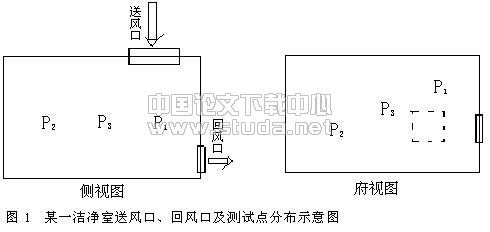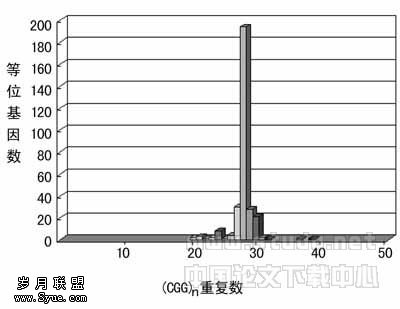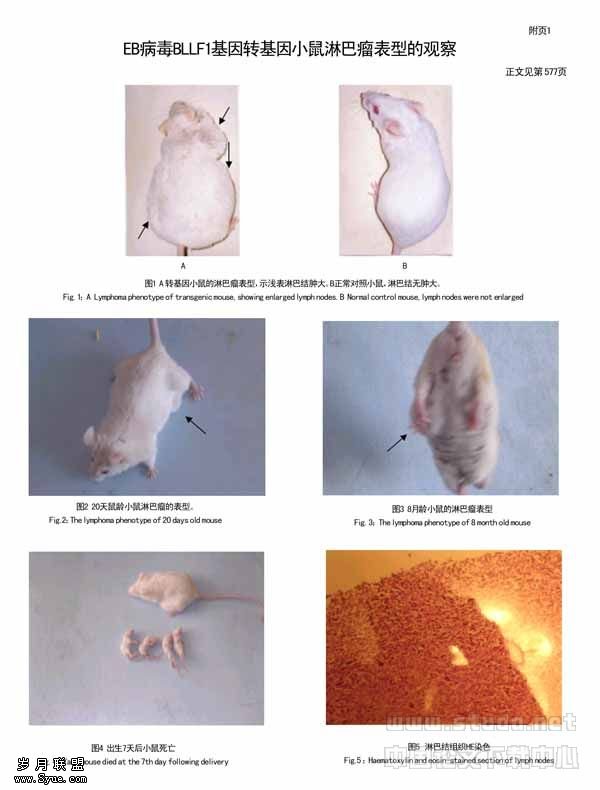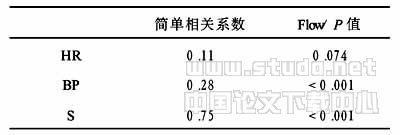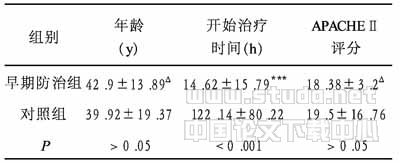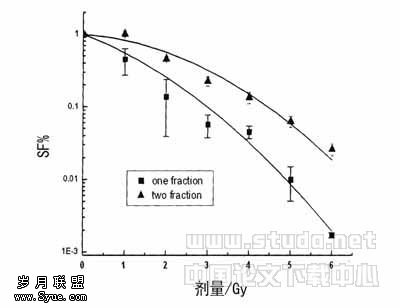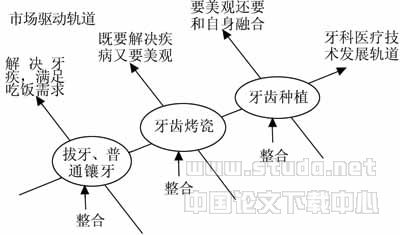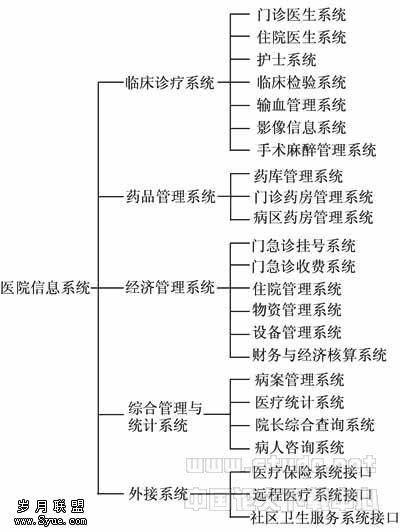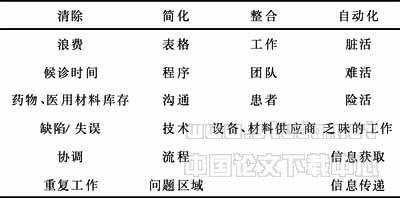Epidermal Growth Factor Receptor Tyrosine Kinase Inhibitors:
作者:Dirk Arnold, Stefan Peinert, Wieland Voigt, Hans-Joachim Schmoll
【关键词】 Tyrosine,kinase,inhibitor
Martin-Luther-Universit?t Halle, Halle, Germany
Key Words. Tyrosine kinase inhibitor ; Epidermal growth factor receptor ; Colorectal cancer ; Gastroesophageal cancer ; Pancreatic cancer ; Gastrointestinal cancer
ABSTRACT
Background. Despite advances in conventional and targeted anticancer therapy, the prognosis remains poor for many patients with solid tumors. Ongoing research into the molecular basis of malignant disease, however, has yielded many novel agents with potential activity, including the epidermal growth factor receptor tyrosine kinase inhibitors (EGFR-TKIs).
Design. This review summarizes current clinical data for EGFR-TKIs as monotherapy or in combination with 5-fluorouracil/leucovorin, irinotecan, or oxaliplatin, focusing on the rapidly developing area of colorectal, gastroesophageal, and pancreatic cancers.
Results. EGFR-TKIs have limited but valuable activity as monotherapy in non-small cell lung cancer patients who have received prior anticancer treatment. The potential for application as a single agent in colorectal, gastroesophageal, and pancreatic cancers has yet to be demonstrated conclusively and deserves further investigation, especially as second- or third-line therapy. In combination with oxaliplatin-based regimens and 5-fluorouracil/leucovorin-based regimens, TKIs have shown benefits, suggesting that there may be a synergistic effect with chemotherapy. However, combinations with irinotecan-based regimens have been limited by toxicities.
Conclusions. EGFR-TKIs show benefits when used in combination with chemotherapy, and the favorable toxicity profiles observed suggest that these may be of value in frail or elderly patients.
INTRODUCTION
Although advances in conventional chemotherapy have extended life expectancy, the prognosis for many patients with solid tumors remains poor, especially for those with metastatic disease. The search for more effective, less toxic therapies has given rise to a new generation of antitumor agents, including orally active small molecule tyrosine kinase inhibitors (TKIs) targeted against the ErbB tyrosine kinase receptor family (also known as the HER receptor family or type I receptor tyrosine kinases). This class of growth factor receptors plays a fundamental role in the regulation of cell proliferation, differentiation, and survival [1]. All ErbB receptors are thought to be involved in cancer, and their overexpression is often a prognostic or predictive indicator [1]. TKIs targeted against the epidermal growth factor receptor (EGFR; also called HER-1 or ErbB-1) currently in clinical development include gefitinib, erlotinib, EKB-569, lapatinib, CI-1033, PKI-166, and AEE 788.
The clinical benefits of EGFR-TKIs were first demonstrated in non-small cell lung cancer (NSCLC). Gefitinib, the first EGFR-TKI approved for clinical use, is indicated as monotherapy at a dose of 250 mg/day until disease progression for third-line treatment of recurrent or progressive disease [2]. Results from phase II studies indicate that gefitinib monotherapy is active in previously treated patients, including the elderly and frail, with response rates that range from 9%19%. Disease stabilization was achieved in more than 50% of patients and, most importantly, improvement in quality of life by reduction of disease-related symptoms occurred in 22%43% of cases [3, 4]. Final results from a U.S. expanded-access program including more than 20,000 pretreated patients demonstrated a 1-year survival rate of 30% [5]. Survival data from this program also consistently indicate efficacy similar to that of conventional chemotherapy [5]. Results from phase III trials, Iressa NSCLC Trial Assessing Combination Therapy (INTACT) 1 and INTACT 2, did not demonstrate the same level of efficacy for NSCLC as seen in phase II trials. In these two large, randomized, controlled trials with more than 2,000 patients combined, the addition of gefitinib to chemotherapy failed to meet either the primary end point of survival or the secondary end point of disease progression or response rates [6, 7].
Erlotinib is the only other EGFR-TKI to have reached phase III clinical assessment for NSCLC. Erlotinib monotherapy has been shown to have efficacy and safety profiles similar to those of gefitinib [8]. A recent study compared erlotinib with best supportive care in a second/third-line setting [9]. The response rate of 9%, median survival rate of 6.7 months, and 1-year survival rate of 31% support the findings seen with gefitinib. In this study, comparing erlotinib with placebo, there was a small but significant survival benefit of 2 months for patients treated with erlotinib [9].
However, these promising results with EGFR-TKI monotherapy could not be translated into improved efficacy when combining gefitinib or erlotinib with standard first-line chemotherapy for the treatment of NSCLC: neither response rates nor survival were increased by the addition of the EGFR inhibitors to various chemotherapy regimens [6, 7, 10, 11].
The success of EGFR-TKIs in treating NSCLC has prompted research into their clinical benefits in other malignancies. This article focuses on the results in gastrointestinal cancers, including colorectal cancer (CRC), gastroesophageal cancer, and pancreatic cancer.
COLORECTAL CANCER
Monotherapy
Gefitinib as monotherapy was studied in a two-part phase I/II study of solid tumors. The initial dose-escalation phase, involving 28 patients, established the antitumor activity and tolerability of gefitinib at 600800 mg/day [12]. A dose of 750 mg/day for 28 days was selected for a study expansion in CRC patients only [13]. In total, 27 patients were eligible for safety analysis, 26 of whom received gefitinib in the expansion phase. Most patients (85%) had received prior treatment for metastatic disease. The most common drug-related toxicities (rash, diarrhea, and nausea) were limited to grade I or II in severity; nine patients required dose reductions.
Response was evaluable in 24 patients, and of these, 33% had stable disease (SD) (Table 1) [13]. Biopsy analysis of liver metastasis samples from 17 patients showed that the mean cancer cell proliferation index decreased from 31% to 21% with gefitinib treatment (p = .047).
In another phase II randomized trial that investigated the clinical and biological effects of gefitinib, 115 patients with recurrent colorectal adenocarcinoma (AC) were randomly assigned to orally receive 250 mg or 500 mg gefitinib twice daily. Of these, 110 patients were assessable for clinical efficacy. One patient achieved a radiographic partial response (PR). The median progression-free survival time was 1.9 months, and the 4-month progression-free survival rate was 13%. Median survival was 6.3 months. Twenty-eight patients underwent paired tumor biopsies to analyze for activation of the EGFR signaling pathway. The expression of total or activated EGFR, activated Akt, mitogen-activated protein kinase (MAPK), or Ki67 did not decrease following 1 week of gefitinib [14].
Despite evidence of biological activity, gefitinib did not demonstrate an objective tumor response in this heavily pretreated metastatic CRC population. However, the success of combining chemotherapy with monoclonal antibodies against EGFR prompted a trial of gefitinib in combination with chemotherapy.
The effect of erlotinib on tumor response/disease stabilization is being assessed in a phase II study of patients with metastatic CRC, most of whom had received prior chemotherapy for metastatic disease [15]. To date, 30 patients have been treated with erlotinib (150 mg/day) on a 4-weekly cycle (Table 1). Preliminary data are similar to the findings of the gefitinib trial: 32% (8 of 25) of patients had SD, 48% (12 of 25) progressed on treatment, and the remainder were not eligible for evaluation. Five patients with SD progressed after a mean period of 135 days; three other SD patients were still on study. The incidence rate for grade III diarrhea (12%) was comparable with that seen with gefitinib (13%; Table 2) [13]. Other grade III events included nausea and vomiting, each in 8% (2 of 25) of patients. Two patients reported grade IV constipation [15].
A further large phase II trial conducted by the German AIO group with erlotinib in a second- or third-line treatment setting was recently presented [16]. In this two-cohort study of 23 second-line- and 28 third-line-treated CRC patients, 150 mg of erlotinib was given daily until disease progression. Tumor response in metastatic CRC patients treated with EGFR-TKIs was reported for the first time: two patients (4%) achieved a partial response (PR). A further 28% had SD, resulting in a tumor control rate of 32%. The median duration of disease control was 133 days by the time of publication, being very similar to the 135 days achieved in the previously mentioned erlotinib study [15]. Toxicity, however, was more pronounced in the AIO study (Table 2) [16].
Lapatinib (GW572016) is being assessed in patients previously treated for metastatic CRC [17]. Patients with measurable lesions of stage IV colon cancer, who had progressed after receiving at least two cycles of 5-fluorouracil (5-FU) in combination with oxaliplatin or irinotecan, were treated with lapatinib (1,250 mg/day). Results of 86 patients have been reported. Therapy was generally well tolerated with rates of grade III toxicities as low as 5% for diarrhea and 2% each for rash, fatigue, and anorexia (Table 2). The main grade I or II toxicities were diarrhea (45%), rash (33%), fatigue (27%), and nausea (20%). Efficacy, however, was also relatively poor, with only 1 of 86 patients achieving a PR and 5 of 86 patients experiencing clinical benefit from lapatinib in this setting (Table 1). Accordingly, time to progression and overall survival were 2 and 10 months, respectively [7].
EGFR-TKIS PLUS 5-FU/LEUCOVORIN
In the first part of a two-part, phase II study of gefitinib in combination with 5-FU and leucovorin (LV) in advanced CRC, patients were treated with intermittent gefitinib (250500 mg/day on days 114) plus 5-FU/LV administered as a bolus in a dose-reduced Mayo Clinic regimen (370/20 mg/m2) on days 812 [18]. In the second part of the study, gefitinib was administered continuously at the maximum-tolerated dose (MTD) (500 mg/day, determined in the first part of the study) and 5-FU/LV was added to the schedule on days 812 and 3640.
In contrast to the trials featuring single-agent TKIs, most of the 26 patients had received no prior chemotherapy (81%; the remainder had received adjuvant 5-FU). Across the whole study, an objective tumor response rate of 23% was observed: one patient experienced a complete response (CR), and five had PRs. No doseresponse relationship was observed. The study treatment was generally well tolerated; the most common toxicities were rash and diarrhea (Table 2).
Recent data from a phase I trial of gefitinib (250 mg/ day) and 5-FU (400 mg/m2 bolus and 2,800 mg/m2 over 48 hours) in 17 patients with 5-FU-refractory CRC showed that six patients had SD according to Response Evaluation Criteria in Solid Tumors (RECIST) guidelines [19]. It appeared that gefitinib halted the progression of 5-FU-resistant CRC in a proportion of patients.
Very preliminary results are available from a small phase I/II trial combining gefitinib with capecitabine in patients with advanced CRC after failure of first-line therapy [20]. In that study, 10 patients have been treated with 250 mg gefitinib daily and 1,000 mg (six patients) or 1,250 mg (four patients) of capecitabine twice daily. The main toxicities were diarrhea (causing treatment interruption in one case), asthenia, and skin rash. Of six patients evaluable for efficacy, five had SD and one patient progressed on treatment [20].
The potential synergistic activity and acceptable toxicity associated with the combination of gefitinib plus 5-FU/ LV has led to investigations of its integration into standard regimens for CRC, including irinotecan- and oxaliplatin-based regimens.
EGFR-TKIs Plus Irinotecan-Based Therapy
Adose-finding trial of irinotecan plus gefitinib in 18 patients with refractory advanced CRC pretreated with fluoropyrimidine-based chemotherapy defined irinotecan given at a dose of 225 mg/m2 as a single agent every 3 weeks plus gefitinib at a dose of 250 mg/day as the MTD of this regimen [21]. Dose-limiting toxicities (DLTs), in particular neutropenia and diarrhea, occurred at unexpectedly low doses of irinotecan. To date, disease stabilization was achieved in 21% (4/18) of patients.
A small phase II trial investigated the combination of gefitinib plus irinotecan, LV, and a 46-hour infusion of 5-FU (the FOLFIRI regimen) in 13 patients with previously untreated CRC [22]. However, dose reductions owing to dose-limiting neutropenia and diarrhea and only modest activity resulted in early closure of the study.
In another phase I study, gefitinib was combined with FOLFIRI as second- or third-line treatment in patients with metastatic CRC [23]. Reduced doses of 5-FU, LV, and irinotecan (1,600/500/60 mg at dose level 1) were administered weekly, but severe toxicities rendered this combination not feasible without further dose reduction.
In a similar phase I study, gefitinib, at four different dose levels, was combined with irinotecan and capecitabine as second- or third-line treatment for CRC patients [24]. DLTs, however, already occurred at the first dose level, and the dose escalation was halted at level 2. The main grade III toxicities were diarrhea and neutropenia.
The results of a phase I/IIA study with EKB-569 used in combination with the FOLFIRI regimen in 47 patients as first-line treatment in patients with advanced CRC demonstrated favorable results [25]. Sixty-four percent had an Eastern Cooperative Oncology Group performance status (ECOG PS) score of 0, and 33% had an ECOG PS score of 1. DLTs were grade 3 diarrhea (two patients in the 75-mg cohort and two patients in the 50-mg/modified FOLFIRI cohort) and grade 3 fatigue (one patient in the 50-mg cohort and one patient in the 50-mg/ modified FOLFIRI cohort). The MTD was selected as 25 mg EKB-569. Limiting grade 2 diarrhea was observed in the 50-mg cohort. Of 39 patients seen for follow-up, the response rate was 38% and the clinical benefit rate was 85%. EKB-569 treatment resulted in complete inhibition of pEGFR and significant inhibition of pMAPK in both skin samples (11 patients) and tumor samples (three patients) with no change in pAkt activity.
Grade III or IV neutropenia appears to be a limiting factor when using TKIs in combination with irinotecan-containing regimens. This view is supported by the experience with the irreversible EGFR-TKI EKB-569 and with erlotinib. Recently, a phase I/II study of erlotinib plus FOLFIRI was terminated early after the phase I safety data showed unacceptable levels of toxicity [26].
In conclusion, the unfavorable safety profiles of irinotecan-based combinations with EGFR-TKIs appear to present considerable barriers to their further clinical development.
EGFR-TKIs Plus Oxaliplatin-Based Therapy
Several phase II studies exploring the use of gefitinib in combination with oxaliplatin and 5-FU/LV in metastatic CRC patients are ongoing (Table 3). In a North American study, patients are receiving 5-FU, LV, and oxaliplatin (FOLFOX)-4, with second and subsequent cycles being administered concomitantly with gefitinib 500 mg/day [27, 28]. Twenty-seven previously treated patients were treated with a combination of gefitinib, 5-FU/LV, and oxaliplatin (the IFOX regimen) [29]. Nine of 27 patients (33%) experienced a PR, 12 of 27 (44%) had SD for at least four cycles, and 15 (56%) had progression of their disease. The median overall survival time for all assessable patients was 12 months.
Preliminary data in 54 patients evaluable for tumor response, the primary end point, indicate high activity of FOLFOX-4 plus gefitinib (Table 3) [27]. For first-line treatment, there was a 77% PR rate (with 53% confirmed responses after 4 weeks). Moreover, clinical benefit (i.e., tumor response or SD) was observed in 97% of patients. The median time to progression was 9.5 months. This encouraging activity was preserved in second-line treatment [29]. In previously treated patients, the application of FOLFOX-4 and gefitinib was associated with a PR rate of 33% and a clinical benefit rate of 77%. The median time to progression was 5.4 months; the median overall survival time was 12 months. Response and clinical benefit rates of 30% and 75%, respectively, were observed in patients previously treated with irinotecan [29].
The favorable efficacy data from the U.S. study are supported by an ongoing Italian phase II trial (Table 3) [28]. Patients are treated with the simplified FOLFOX-6 regimen combined with gefitinib, 250 mg/day, given continuously, as first-line treatment. To assess any maintenance effect, patients not progressing after 810 cycles of treatment can continue gefitinib. To date, among the 39/47 patients evaluable for efficacy, a response rate of 74% and a clinical benefit rate of 98% have been reported.
All patients from the U.S. trial [29] and 89% of patients from the Italian trial [28]were evaluable for toxicity. Overall, toxicity rates were markedly more favorable than with the irinotecan-based regimens. The most frequent grade III or IV toxicities in both oxaliplatin-based studies were diarrhea and neutropenia/leukopenia. The Italian study regimen appears to have a better safety profile than that used in the U.S. study (Fig. 1). To date, both combinations have been associated with higher incidences of grade III or IV diarrhea, nausea, and vomiting than with FOLFOX alone [30].
Furthermore, a German phase I trial using the FUFOX regimen (oxaliplatin plus LV weekly with a 24-hour infusion of 5-FU, without a bolus) also showed a modest rate of grade III diarrhea (5 of 17) and no other grade III toxicities in pretreated patients with a gefitinib dose of 250 mg/m2 (Table 3) [31]. Clinical benefit was achieved in 53% (9 of 17) of patients, including four PRs (24%) with FUFOX/ gefitinib as second- or third-line therapy. Accordingly, the median time to progression remarkably reached 13.8 months.
Erlotinib (50150 mg/day) is also being investigated in combination with FOLFOX-4 for untreated or minimally pretreated patients with different solid tumors (including CRC) in two dose-escalation studies (Table 3). In one study, 19 patients have been treated for more than one cycle and no DLTs have yet been experienced. Grade III diarrhea in 2 of 19 individuals was the highest toxicity reported. In the 15 patients currently evaluated for efficacy, a PR rate of 13% (2 of 15 patients) and a clinical benefit rate of 80% (12 of 15 patients) have been observed [32]. Very recently, a second study reported three PRs in seven patients (43%) with advanced CRC, with one patient converting from unresectable to resectable disease and therefore undergoing curative intent liver surgery. In addition, three patients achieved SD. Grade III diarrhea (three patients) and grade IV neutropenia (two patients) were the most commonly reported grade III or IV toxicities, and one DLT (grade II rash) was experienced with erlotinib 150 mg/m2 (Table 3) [33].
In a dose-escalation study with EKB-569 [34], patients with previously untreated advanced CRC were administered the FOLFOX-4 regimen (as for the gefitinib study) [29] plus EKB-569, 2575 mg/day, starting from day 3. DLTs were observed with EKB-569 at a dose of 35 mg/day (grade III diarrhea and febrile neutropenia), leaving an MTD of 25 mg/day. The most common grade III or IV adverse events were neutropenia (32%; 9 of 29 patients) and diarrhea (8%; 2 of 29 patients).
Capecitabine is being substituted for 5-FU in CRC treatment combinations in many clinical trials. Preliminary results of three phase II trials are available for the combination of capecitabine, oxaliplatin, and EGFR-TKIs. Erlotinib plus oxaliplatin and capecitabine has been investigated in two studies in metastatic CRC. A dose-finding study established erlotinib, 100 mg/day, capecitabine, 1,650 mg/m2 per day (days 114), and oxaliplatin, 130 mg/m2 every 3 weeks as the MTD for this regimen [35]. In another phase II study [36], the initial dose schedule had to be reduced from capecitabine, 2,000 mg/m2 per day, to 2 x 750 = 1,500 mg/ m2 per day (days 114), with oxaliplatin (130 mg/m2) and erlotinib (150 mg/day), every 3 weeks. DLTs in both trials were mostly gastrointestinal. In 20 patients of this second-line trial, the PR rate in pretreated patients was 20% and the clinical benefit rate was 84%, with a median time to progression of 5.3 months.
A feasibility study is being performed to assess the combination of gefitinib (250 mg/day) plus capecitabine (2,000 mg/m2 per day, days 115) plus oxaliplatin (120 mg/m2 every 3 weeks for six courses) as first-line treatment in patients with metastatic disease [37]. The toxicity profile is acceptable to date, the most common grade 3 adverse events being diarrhea and neutropenia. In 12 evaluable patients, there was a response rate of 50% (6 of 12 patients; 5 PRs, 1 CR) and a clinical benefit rate of 58% (7 of 12 patients). Further studies of TKI-based therapy for CRC are planned or recruiting.
GASTROESOPHAGEAL CANCER
Erlotinib, gefitinib, and EKB 569 have preliminary data in gastrointestinal malignancies. The gastrointestinal malignancies are a heterogeneous group of diseases with significant variability in etiology, genetics, demographics, presentation, and clinical behavior. It has been demonstrated that there is a correlation between EGFR overexpression and clinical outcomes to varying degrees depending upon the technique used to measure EGFR levels. In both squamous cell cancer (SCC) and AC of the esophagus, investigators have found increased levels of EGFR and have correlated this overexpression with disease outcomes [38]. In a large study from Korea, investigators evaluated the prognostic significance of EGFR and the related protein, HER-2, expression as determined by immunohistochemistry in 694 patients with curatively resected stage I to stage III gastric cancer. Overexpression of EGFR was found in 22.6% (150/665) of tumor specimens and was associated with higher histologic grade (p = .000) and more nerve invasion (p = .018) [38].
CRC has been studied more extensively than the other gastrointestinal malignancies. Preclinical studies demonstrated that EGFR overexpression is seen in both chemically induced colon tumor models and in adenoma formation in the ApcMin mouse model for familial adenomatous polyposis [39, 40]. Clinical trials in gastric carcinoma have provided minimal evidence of the efficacy of anti-EGFR therapy. In a multicenter, phase II Japanese study, 13 of 75 patients (18.3%) with metastatic gastric cancer, receiving either 250 mg/day or 500 mg/day of gefitinib orally, displayed disease control. Grade III and IV toxicities occurred in 11.1% and 23.7% of patients in the 250 mg/day and 500 mg/day groups, respectively [41, 42].
Very limited clinical data are available for EGFR inhibition in esophageal cancer. A very early report of a phase II trial evaluating single-agent erlotinib in patients with metastatic esophageal cancer regardless of EGFR expression who had received up to one prior chemotherapy regimen for metastatic disease has been presented [43]. Of the 15 patients treated at the time of abstract presentation, 10 overexpressed EGFR. The only response seen was with SCC. In a second trial of gefitinib (500 mg/day) administered to 34 evaluable patients with prior chemotherapy and esophageal cancer, three patients had PRs and six had SD [44]. This and other trials are ongoing, using both single agents and combinations with chemotherapy, other novel agents, and/ or radiation therapy. The favorable experience in trials of EGFR-TKIs in patients with refractory SCC of the head and neck, and with other ACs, led to trials of these compounds in both esophageal SCC and AC.
Gefitinib, 500 mg/day until disease progression, has been investigated in two phase II trials as second-line monotherapy [45, 46]. In the first, 26 patients with esophageal AC were evaluable for tumor response [45]. Gefitinib (500 mg/day) was associated with clinical benefit in 58% of patients: 12% had durable PRs and 12 (46%) had SD for 4 weeks. The 6-month progression-free survival rate was 15%. In the second study, including refractory patients with both SCC and AC, 30 of 36 patients were evaluable for response [46]. The PR rate was 10% and the clinical benefit rate was 37.5% (9 of 24). The median time to progression was 8 weeks, and the 6-month survival rate was 52%.
Recently, another phase II trial for patients with recurrent or metastatic esophageal or gastroesophageal junction cancer treated with gefitinib monotherapy (250 mg daily) was published [47]. Nineteen patients with AC and one patient with SCC were enrolled; 16/20 of these patients had received previous chemotherapy. Toxicity was restricted to grade I or II and consisted mainly of mild diarrhea, nausea, and skin rash. Three of 20 patients achieved a PR and another three patients had SD, resulting in a clinical benefit rate of 30% that lasted for a mean duration of 4.6 months.
A fourth trial of 15 patients with SCC (four patients) or AC (11 patients) of the esophagus investigated treatment with erlotinib (150 mg/day). One confirmed PR was observed, with a tumor control rate yielding 47% [42].
Regarding gastric AC, a further phase II trial included 75 pretreated patients randomized to receive either 250 mg/ day or 500 mg/day gefitinib. However, only one patient had a PR and 12 patients had SD (four patients at 250 mg/day, eight patients at 500 mg/day), leading to a tumor control rate of 18% in this chemotherapy-refractory population [43].
In all studies, the toxicity profile was as predicted from previous studies of gefitinib monotherapy [2], and in the largest trial, toxicity occurred with dose-related intensity. The results indicate that TKIs represent a well-tolerated treatment choice with similar activity to chemotherapy regimens in these poor prognosis patients.
PANCREATIC CANCER
Experience with EGFR-TKIs in pancreatic cancer is limited, but available results suggest some activity. Data from a phase III trial of erlotinib plus gemcitabine in patients with advanced pancreatic AC indicate that this combination offers a statistically significant survival benefit compared with gemcitabine alone [48]. Patients received gemcitabine (1,000 mg/m2) weekly for 7 of 8 weeks, then weekly for 3 of 4 weeks plus erlotinib (100 mg/day) or placebo. Overall survival was better with erlotinib than with placebo (hazard ratio, 0.81); the 1-year survival rates were 24% versus 17%, respectively. Progression-free survival was also better with erlotinib (hazard ratio, 0.76). The tumor control and response rates were 57% (9% CR/PR) and 49% (8% CR/PR) with erlotinib and placebo, respectively.
Also in the second-line setting, when combined with capecitabine, erlotinib was able to show considerable activity. In a phase II trial of 28 patients with advanced pancreatic cancer, capecitabine was administered at a dose of 1,000 mg/m2 twice daily on days 114 of a 22-day cycle with concomitant medication of erlotinib (150 mg/day). As best response, 3 of 28 patients (11%) achieved a PR and 16 of 28 patients (57%) had SD, resulting in a tumor control rate of 68% and a median overall survival duration of 6.7 months [49].
In addition, results from two phase I studies of erlotinib in combination with chemotherapy and irradiation indicate activity in pancreatic cancer. In a trial of erlotinib, gemcitabine, paclitaxel, and radiotherapy followed by maintenance erlotinib for locally advanced pancreatic cancer, 7 of 13 patients experienced a PR [50]. In another study combining erlotinib with gemcitabine and irradiation for locally advanced, unresectable pancreatic cancer, 7 of 8 evaluable patients experienced disease stabilization [51].
CONCLUSIONS
Ongoing research has demonstrated the potential value of EGFR-TKIs, particularly as monotherapy, in patients who have received prior anticancer treatment in many tumor types, notably NSCLC, in which response rates of approximately 10% have been seen. Approximately 30%40% of patients achieve a response or disease stabilization with a reduction in tumor-related symptoms. These findings of limited but valuable activity indicate that EGFR-TKIs may be useful in the treatment of refractory CRC, gastroesophageal cancer, and pancreatic cancer and deserve further investigation. Recently, for the first time, objective PRs have been reported in patients with refractory CRC treated with EGFR-TKI monotherapy [16, 17]. Still, compared with the results of monotherapy with EGFR monoclonal antibodies such as cetuximab [52] and panitumumab [53], small molecule TKIs seem to be less efficient. However, the limited activity seen with single-agent TKIs is consistent with that for other "targeted" drugs, such as bevacizumab, which appear to enhance the activity of chemotherapy when given simultaneously rather than having cytotoxic effects themselves. When used in combination regimens, TKIs have shown benefit with oxaliplatin-based schedules, whereas irinotecan-containing regimens may be limited by synergistic toxicity (mainly gastrointestinal toxicity, notably diarrhea). The combination of gefitinib with fluoropyrimidines and oxaliplatin has yielded some of the highest response rates so far reported in CRC, indicating that there may be a synergistic effect with chemotherapy. Interestingly, these findings are supported by our own preclinical results [54] and are in contrast to the results obtained in NSCLC for combinations with standard chemotherapy (TRIBUTE, TALENT, and INTACT trials) [6, 7, 10, 11]. It remains to be investigated whether this is an effect caused by the underlying tumor entity or by concomitant chemotherapy, or if it is schedule dependent.
Recent reports suggest that mutations in the EGFR gene predict sensitivity to gefitinib [55, 56]. Whether these mutations occur in cancers other than NSCLC and whether they only predict response to single-agent therapy remains controversial. The response to TKIs in combination with chemotherapy may be independent of mutational status owing to the chemosensitizing activity of TKIs. To date, the favorable toxicity profile of TKIs suggests that these agents may prove effective as monotherapy in frail or elderly patients as upfront or salvage treatment and may be of particular value in combination with conventional chemotherapy. Hopefully, further research will identify which patient groups will benefit most from EGFR-TKI therapy, and ongoing clinical trials will establish drug doses and novel combinations with chemotherapy and other targeted drugs that will maximize clinical benefit while minimizing toxicity.
DISCLOSURE OF POTENTIAL CONFLICTS OF INTEREST
H.J.S. has acted as a consultant for sanofi-aventis and Astra Zeneca.
ACKNOWLEDGMENT
This publication was supported by an educational grant from AstraZeneca. The authors would like to acknowledge the editorial support of Gardiner-Caldwell London in the preparation of this manuscript.
REFERENCES
Yarden Y, Sliwkowski MX. Untangling the ErbB signalling network. Nat Rev Mol Cell Biol 2001;2:127137.
Cohen MH, Williams GA, Sridhara R et al. FDA drug approval summary: gefitinib (ZD1839) (Iressa) tablets. The Oncologist 2003;8:303306.
Fukuoka M, Yano S, Giaccone G et al. Multi-institutional randomized phase II trial of gefitinib for previously treated patients with advanced non-small-cell lung cancer. J Clin Oncol 2003;21:22372246.
Kris MG, Natale RB, Herbst RS et al. Efficacy of gefitinib, an inhibitor of the epidermal growth factor receptor tyrosine kinase, in symptomatic patients with non-small cell lung cancer: a randomized trial. JAMA 2003;290:21492158.
Ochs J, Grous JJ, Warner KL. Final survival and safety results for 21,064 non-small-cell lung cancer (NSCLC) patients who received compassionate use gefitinib in a US expanded access programme (EAP). Proc Am Soc Clin Oncol 2004;23:628.
Giaccone G, Herbst RS, Manegold C et al. Gefitinib in combination with gemcitabine and cisplatin in advanced non-small-cell lung cancer: a phase III clinical trial--INTACT 1. J Clin Oncol 2004;22:777784.
Herbst RS, Giaccone G, Schiller J et al. Gefitinib in combination with paclitaxel and carboplatin in advanced non-small-cell lung cancer: a phase III trial--INTACT 2. J Clin Oncol 2004;22:785794.
Perez-Soler R, Chachoua A, Huberman M et al. A phase II trial of the epidermal growth factor receptor (EGFR) tyrosine kinase inhibitor OSI-774, following platinum-based chemotherapy, in patients (pts) with advanced, EGFR-expressing, non-small cell lung cancer (NSCLC). Proc Am Soc Clin Oncol 2001;20:310.
Shepherd FA, Rodrigues-Pereira J, Ciuleanu TE et al. Erlotinib in previously treated non-small-cell lung cancer. N Engl J Med 2005;353: 123132.
Gatzemeier U, Pluzanska A, Szczesna A et al. Results of a phase III trial of erlotinib (OSI-774) combined with cisplatin and gemcitabine (GC) chemotherapy in advanced non-small cell lung cancer (NSCLC). Proc Am Soc Clin Oncol 2004;22:7010a.
Herbst RS, Prager D, Hermann R et al. TRIBUTE: a phase III trial of erlotinib hydrochloride (OSI-774) combined with carboplatin and paclitaxel chemotherapy in advanced non-small-cell lung cancer. J Clin Oncol 2005;23:58925898.
Goss G, Hirte H, Miller WH Jr et al. A phase I study of oral ZD 1839 given daily in patients with solid tumors: IND.122, a study of the Investigational New Drug Program of the National Cancer Institute of Canada Clinical Trials Group. Invest New Drugs 2005;23:147155.
Mackenzie MJ, Hirte HW, Glenwood G et al. A phase II trial of ZD1839 (Iressa) 750 mg per day, an oral epidermal growth factor receptor-tyrosine kinase inhibitor, in patients with metastatic colorectal cancer. Invest New Drugs 2005;23:165170.
Rothenberg ML, LaFleur B, Levy DE et al. Randomized phase II trial of the clinical and biological effects of two dose levels of gefitinib in patients with recurrent colorectal adenocarcinoma. J Clin Oncol 2005;23:92659274.
Oza AM, Townsley CA, Siu LL et al. Phase II study of erlotinib (OSI-774) in patients with metastatic colorectal cancer. Proc Am Soc Clin Oncol 2003;22:196.
Niederle N, Freier W, Porschen R et al. Erlotinib as single agent in 2nd and 3rd line treatment in patients with metastatic colorectal cancer. Results of a two-cohort multicenter phase II study. Eur J Cancer 2005;3(suppl 3):184.
Fields ALA, Rinaldi DA, Henderson CA et al. An open-label multicenter phase II study of oral lapatinib (GW572016) as single agent, second-line therapy in patients with metastatic colorectal cancer. A phase II, open-label, multicenter study of GW572016 in patients with metastatic colorectal cancer refractory to 5-FU in combination with irinotecan and/or oxaliplatin. Proc Am Soc Clin Oncol 2005;23(16 suppl):3583a.
Hammond LA, Figueroa J, Schwartzberg L et al. Epidermal growth factor receptor tyrosine kinase inhibitor, ZD1839 (‘Iressa’), in combination with 5-fluorouracil and leucovorin, in advanced colorectal cancer. Poster presented at the 11th European Cancer Conference, Lisbon, Portugal, October 2125, 2001.
Bridgewater JA, Harrison M, Broby S et al. Phase I clinical trial of gefitinib and 5FU in patients with 5FU-refractory colorectal cancer. Poster presented at the American Society of Clinical Oncology, Gastrointestinal Cancers Symposium, Hollywood, Florida, January 2729, 2005.
Jimeno A, Sevilla I, Gravalos C et al. Phase I/II trial of capecitabine and gefitinib in patients with advanced colorectal cancer after failure of first-line therapy. Proc Am Soc Clin Oncol 2005;23(16 suppl):3176a.
Chau I, Massey A, Higgins L et al. Phase I study of gefitinib in combination with irinotecan in patients with fluoropyrimidine-refractory advanced colorectal cancer (CRC). Proc Am Soc Clin Oncol 2004;23:263.
Veronese ML, Sun W, Giantonio B et al. A phase II trial of gefitinib with 5-fluorouracil, leucovorin, and irinotecan in patients with colorectal cancer. Br J Cancer 2005;92:18461849.
Hochhaus A, Hofheinz R, Heike M et al. Phase I study of gefitinib in combination with FOLFIRI as 2nd-/3rd-line treatment in patients with metastatic colorectal cancer. Proc Am Soc Clin Oncol 2005;23(16 suppl):3674a.
Arnold D, Constantin C, Seufferlein T et al. Phase I study of gefitinib in combination with capecitabine and irinotecan for 2nd- and/or 3rd-line treatment in patients with metastatic colorectal cancer. Proc Am Soc Clin Oncol 2005;23(16 suppl):3691a.
Casado E, Folprecht L, Paz-Ares L et al. A Phase I/IIA pharmacokinetic and serial skin and tumor pharmacodynamic study of the EGFR irreversible tyrosine kinase inhibitor EKB-569 in combination with 5-fluorouracil leucovorin and irinotecan (FOLFIRI regimen) in patients with advanced colorectal cancer. Proc Am Soc Clin Oncol 2004;23:256.
Messersmith WA, Laheru DA, Senzer NN et al. Phase I trial of irinotecan, infusional 5-fluorouracil, and leucovorin (FOLFIRI) with erlotinib (OSI-774): early termination due to increased toxicities. Clin Cancer Res 2004;10:65226527.
Cho CD, Fisher GA, Halsey J et al. A phase II study of IFOX (gefitinib with FOLFOX-4) in patients with unresectable or metastatic colorectal cancer. Poster presented at the 40th Annual Meeting of the American Society of Clinical Oncology, New Orleans, LA, June 58, 2004.
Zampino MG. Gefitinib combined with simplified FOLFOX-6 as first-line treatment in epidermal growth factor receptor (EGFR)-positive advanced colorectal cancer. Poster presented at the 29th European Society for Medical Oncology Conference, Vienna, Austria, October 30November 2, 2004.
Kuo T, Cho C, Halsey J et al. Phase II study of gefitinib, fluorouracil, leucovorin, and oxaliplatin therapy in previously treated patients with metastatic colorectal cancer. J Clin Oncol 2005;23:56135619.
Mosconi S, Cascinu S, Zaniboni A et al. The value of oxaliplatin in combination with continuous infusion +/ bolus 5-fluorouracil and levo-folinic acid in metastatic colorectal cancer progressing after 5FU-based chemotherapy: a GISCAD (Italian Group for the Study of Digestive Tract) cancer phase II trial. Tumori 2000;86:465469.
Hartmann JT, Kroening H, Bokemeyer C et al. Phase I study of gefitinib in combination with oxaliplatin and weekly 5-FU/LV (FUFOX) for second-/third-line treatment in patients (pts) with metastatic colorectal cancer (CRC). Proc Am Soc Clin Oncol 2005;23:3154a.
Hanauske AR, Diaz-Rubio E, Cassidy J et al. Erlotinib HCl in combination with FOLFOX4 in patients with solid tumors. Proc Am Soc Clin Oncol 2003;22:197.
Messersmith WA. Phase I trial and biologic study of erlotinib combined with FOLFOX-4 in patients with advanced colorectal cancer: Initial results. Poster presented at the American Society of Clinical Oncology, Gastrointestinal Cancers Symposium, Hollywood, Florida, January 2729, 2005.
Tejpar S, Van Cutsem E, Gamelin E et al. Phase 1/2a study of EKB-569, an irreversible inhibitor of epidermal growth factor receptor, in combination with 5-fluorouracil, leucovorin, and oxaliplatin (FOLFOX-4) in patients with advanced colorectal cancer (CRC). Proc Am Soc Clin Oncol 2004;23:265.
Delord J, Beale P, Van Cutsem E et al. A phase 1b dose-escalation trial of erlotinib, capecitabine and oxaliplatin in colorectal cancer (MCRC) patients. Proc Am Soc Clin Oncol 2004;23:266.
Meyerhardt J, Xhu A, Enzinger D et al. Phase II study of capecitabine, oxaliplatin and erlotinib in previously treated patients with metastatic colorectal cancer (MCRC). Proc Am Soc Clin Oncol 2004;23:265. Data from poster.
Zeuli M, Gelibter A, Nardoni C et al. A feasibility study of gefitinib in association with capecitabine (CAP) and oxaliplatin (OXA) as first-line treatment in patients with advanced colorectal cancer (ACRC). Proc Am Soc Clin Oncol 2004;23:306.
Arteaga CL. Overview of epidermal growth factor receptor biology and its role as a therapeutic target in human neoplasia. Semin Oncol 2002;29(suppl 14):39.
Song HS, Kim IH, Sohn SS et al. Prognostic significance of p53, Rb, EGFR, and c-erB2 genes in curatively resected gastric cancer. Proc Am Soc Clin Oncol 2003;22:263.
Malecka-Panas E, Fligiel SEG, Relan NK et al. Azoxymethane enhances ligand-induced activation of EGF receptor tyrosine kinase in the colonic mucosa of rats. Carcinogenesis 1996;17:233237.
Roberts RB, Min L, Washington MK et al. Importance of epidermal growth factor receptor signaling in establishment of adenomas and maintenance of carcinomas during intestinal tumorigenesis, Proc Natl Acad Sci U S A 2002;99:15211526.
Rojo J, Tabernero E, Van Cutsem E et al. Pharmacodynamic studies of tumor biopsy specimens from patients with advanced gastric carcinoma undergoing treatment with gefitinib (ZD 1839). Proc Am Soc Clin Oncol 2003;22:191.
Doi T, Koizumi W, Siena S et al. Efficacy, tolerability, and pharmacokinetics of gefitinib (ZD1839) in pretreated patients with metastatic gastric cancer [abstract]. Proc Am Soc Clin Oncol 2003;22:258.
Radovich D, Kelsen D, Shah M et al. OSI-774 in advanced esophageal cancer: a phase II study. J Clin Oncol 2004;22(suppl):23:331.
Van Groeningen C, Richel D, Giaccone G. Gefitinib phase II study in second-line treatment of advance esophageal cancer. Proc Am Soc Clin Oncol 2004;23:318. Data from poster.
Ferry DR, Anderson M, Beddows K et al. Phase II trial of gefitinib (ZD1839) in advanced adenocarcinoma of the oesophagus incorporating biopsy before and after gefitinib. Proc Am Soc Clin Oncol 2004;23:317.
Adelstein DJ, Rybicki LA, Carroll MA et al. Phase II trial of gefitinib for recurrent or metastatic esophageal or gastroesophageal junction (GeJ) cancer. Proc Am Soc Clin Oncol 2005;23(16 suppl):4054a.
Moore MJ, Goldstein D, Hamm J et al. Erlotinib plus gemcitabine compared to gemcitabine alone in patients with advanced pancreatic cancer. A phase III trial of the National Cancer Institute of Canada Clinical Trials Group [NCIC-CTG]. Proc Am Soc Clin Oncol 2005;23(16 suppl):1a.
Blaszkowsky LS, Kulke KH, Ryan DP et al. A phase II study of erlotinib in combination with capecitabine in previously treated patients with metastatic pancreatic cancer. Proc Am Soc Clin Oncol 2005;23(16 suppl):4099a.
Iannitti D, Dipetrillo T, Barnett JM et al. Erlotinib and chemoradiation followed by maintenance erlotinib for locally advanced pancreatic cancer: a phase I study. Poster presented at the American Society of Clinical Oncology, Gastrointestinal Cancers Symposium, Hollywood, Florida, January 2729, 2005.
Kortmansky JS, O’Reilly EM, Minsky BD et al. A phase I trial of erlotinib, gemcitabine and radiation for patients with locally-advanced, unresectable pancreatic cancer. Poster presented at the American Society of Clinical Oncology, Gastrointestinal Cancers Symposium, Hollywood, Florida, January 2729, 2005.
Lenz HJ, Mayer RJ, Gold PJ et al. Activity of cetuximab in patients with colorectal cancer refractory to both irinotecan and oxaliplatin. Proc Am Soc Clin Oncol 2004;22(14 suppl):3510a.
Berlin J, Malik I, Picus J et al. Panitumumab therapy with irinotecan, 5-fluorouracil and leucovorin in patients with metastatic colorectal cancer. Ann Oncol 2004;15(suppl 3):iii70.
Voigt W, Pickan V, Pfeiffer C et al. Preclinical evaluation of ZD1839? alone or in combination with oxaliplatin? in a panel of human tumor cell lines--implications for clinical use. Onkologie 2005;28:482488.
Lynch TJ, Bell DW, Sordella R et al. Activating mutations in the epidermal growth factor receptor underlying responsiveness of non-small-cell lung cancer to gefitinib. N Engl J Med 2004;350:21292139.
Paez JG, Janne PA, Lee JC et al. EGFR mutations in lung cancer: correlation with clinical response to gefitinib therapy. Science 2004;304: 14971500.
